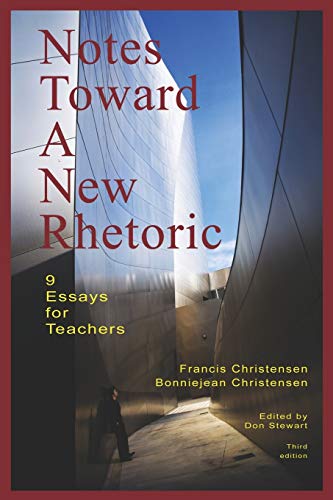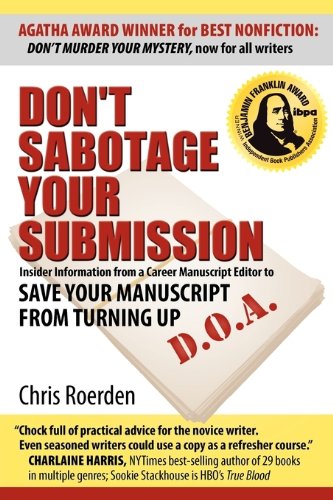For Teachers of Creative Writing and Fiction.
Discover the best books for teaching creative writing and fiction. Enhance your curriculum with top resources and guides for creative writing teachers.

Book
Notes Toward a New Rhetoric
by Francis Christensen
Francis Christensen revolutionized the teaching of writing. These essays document his research, explain his unique numbering system for sentences and paragraphs, and offer immediately usable classroom strategies. Every writing teacher must know the Christensen Method.

Book
Aristotle: Poetics
by Aristotle
Richard Janko's acclaimed translation of Aristotle's Poetics is accompanied by the most comprehensive commentary available in English that does not presume knowledge of the original Greek. Two other unique features are Janko's translations with notes of both the Tractatus Coislinianus, which is argued to be a summary of the lost second book of the Poetics, and fragments of Aristotle's dialogue On Poets, including recently discovered texts about catharsis, which appear in English for the first time.


Book
Poetics
by Aristotle
A complete translation of Aristotle's classic work, supplemented with well-chosen notes and glossary of important terms.

Book
On Rhetoric
by Aristotle,
A revision of George Kennedy's translation of, introdution to, and commentary on Aristotle's On Rhetoric. His translation is most accurate, his general introduction is the most thorough and insightful, and his brief introductions to sections of the work, along with his explanatory footnotes, are the most useful available.

Book
The Writer's Journey
by Christopher Vogler
Shows how writers can use mythic structure to give coherence and weight to both narrative fiction and nonfiction.

Book
The Rhetoric of Fiction
by Wayne C. Booth
A standard reference point in advanced discussions of how fictional form works, how authors make novels accessible, and how readers recreate texts. Its concepts and terms have become standard critical lexicon.

Book
The Anatomy of Story
by John Truby
"If you're ready to graduate from the boy-meets-girl league of screenwriting, meet John Truby . . . [his lessons inspire] epiphanies that make you see the contours of your psyche as sharply as your script." —LA Weekly John Truby is one of the most respected and sought-after story consultants in the film industry, and his students have gone on to pen some of Hollywood's most successful films, including Sleepless in Seattle, Scream, and Shrek. The Anatomy of Story is his long-awaited first book, and it shares all his secrets for writing a compelling script. Based on the lessons in his award-winning class, Great Screenwriting, The Anatomy of Story draws on a broad range of philosophy and mythology, offering fresh techniques and insightful anecdotes alongside Truby's own unique approach to building an effective, multifaceted narrative.

Book
Story
by Robert McKee
Robert McKee's screenwriting workshops have earned him an international reputation for inspiring novices, refining works in progress and putting major screenwriting careers back on track. Quincy Jones, Diane Keaton, Gloria Steinem, Julia Roberts, John Cleese and David Bowie are just a few of his celebrity alumni. Writers, producers, development executives and agents all flock to his lecture series, praising it as a mesmerizing and intense learning experience. In Story, McKee expands on the concepts he teaches in his $450 seminars (considered a must by industry insiders), providing readers with the most comprehensive, integrated explanation of the craft of writing for the screen. No one better understands how all the elements of a screenplay fit together, and no one is better qualified to explain the "magic" of story construction and the relationship between structure and character than Robert McKee.

Book
Don't Sabotage Your Submission
by Chris Roerden
DON'T SABOTAGE YOUR SUBMISSION Winner of the 2009 Benjamin Franklin Award * Discover why 90% of fiction manuscripts are rejected quickly, long before your characters and plot are read. * Learn to spot the clues to average writing-and how to find and fix them in your own work. * See how an editor analyzes the techniques of 215 writers who got right what most writers get wrong. * Get an insider's tips for painless revisions by computer. * Find out the secrets of craft that can boost your odds of changing an "a" for average to the "A" of Accepted. . . . . . . . "Chock full of practical advice for the novice writer. Even seasoned writers could use a copy as a refresher course." --Charlaine Harris, New York Times best-selling author of 29 books in multiple genres "Best book of its kind by far. Required for my college level students. Recommended for all aspiring writers." --Reed Farrel Coleman, two-time Edgar nominee; Shamus, Barry, and Anthony winner "Without qualification, I recommend this book to fiction writers, be they literary, mainstream, or genre writers." --John Thornburg, Professor English/Creative Writing, San Jacinto College, Pasadena, TX "A savvy writer's guide to creating a manuscript that will SELL " --Carolyn Hart, two-time winner of Agatha, Anthony, and Macavity awards "A must for anyone who seeks to become a published author." --Midwest Book Review "This is an undisputed winner ... one that you must buy if you're at all serious about seeing yourself in print. Highly recommended." --Concept Sci-Fi

Book
How Not to Write a Novel
by Howard Mittelmark
"What do you think of my fiction book writing?" the aspiring novelist extorted. "Darn," the editor hectored, in turn. "I can not publish your novel! It is full of what we in the business call 'really awful writing.'" "But how shall I absolve this dilemma? I have already read every tome available on how to write well and get published!" The writer tossed his head about, wildly. "It might help," opined the blonde editor, helpfully, "to ponder how NOT to write a novel, so you might avoid the very thing!" Many writing books offer sound advice on how to write well. This is not one of those books. On the contrary, this is a collection of terrible, awkward, and laughably unreadable excerpts that will teach you what to avoid—at all costs—if you ever want your novel published. In How Not to Write a Novel, authors Howard Mittelmark and Sandra Newman distill their 30 years combined experience in teaching, editing, writing, and reviewing fiction to bring you real advice from the other side of the query letter. Rather than telling you how or what to write, they identify the 200 most common mistakes unconsciously made by writers and teach you to recognize, avoid, and amend them. With hilarious "mis-examples" to demonstrate each manuscript-mangling error, they'll help you troubleshoot your beginnings and endings, bad guys, love interests, style, jokes, perspective, voice, and more. As funny as it is useful, this essential how-NOT-to guide will help you get your manuscript out of the slush pile and into the bookstore.